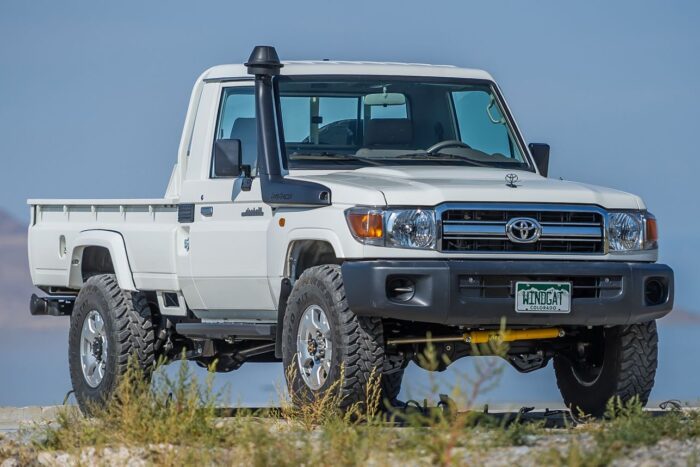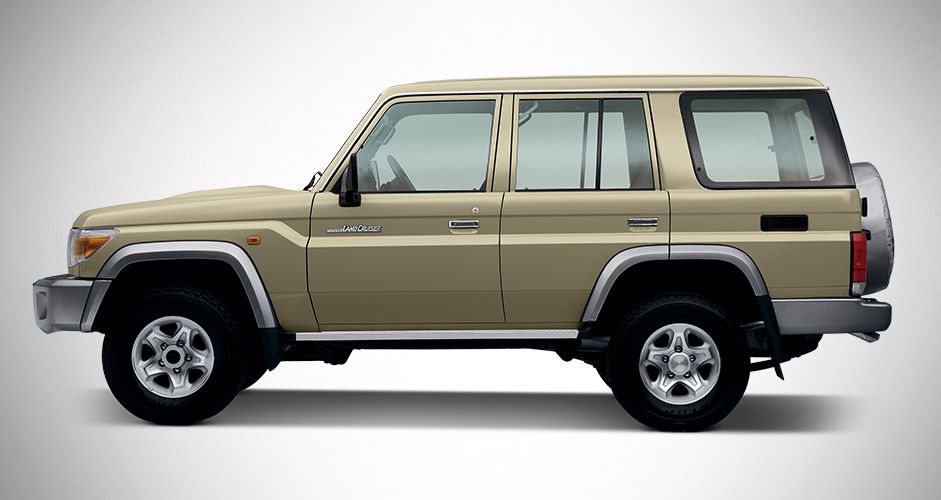When it comes to the iconic Toyota LandCruiser 79 series, tire pressure is more than just a number on the side of your tire. It’s an essential part of vehicle maintenance, ensuring optimal safety, performance, and fuel economy. Whether you’re off-roading or cruising on the highway, knowing the right tire pressure for your specific trim level can make all the difference.
In this comprehensive guide, we’ll delve into the recommended tire pressures for various trims of the Toyota LandCruiser 79 series. Plus, ever found yourself stuck with a persistent low tire pressure light even after inflating your tires? We’ve got the step-by-step on resetting that, too!

Anatomy of a Tire: Understanding the Basics Tires are complex. They’re not just rubber and air; there’s a science behind them!
- Tire Components and Their Roles From the outer tread to the inner linings, each component has a unique role. Did you know the sidewall protects against impacts, and the bead ensures an airtight seal with the rim?
- How Pressure Impacts Performance Ever noticed a deflated football? It doesn’t bounce right! Similarly, incorrect tire pressure can affect braking, cornering, and even the smoothness of a drive.
Recommended Tire Pressure by Trim Level:
| Trim Level | Front Tire Pressure (PSI) | Rear Tire Pressure (PSI) |
|---|---|---|
| LandCruiser 79 GX Single Cab | 35 | 37 |
| LandCruiser 79 GXL Single Cab | 36 | 38 |
| LandCruiser 79 GX Double Cab | 34 | 36 |
| LandCruiser 79 GXL Double Cab | 35 | 37 |
These recommendations are based on standard conditions. For off-road driving or carrying heavy loads, adjustments may be necessary.
- For On-road Driving The sweet spot for city and highway driving is around 34-38 PSI. But always check the manufacturer’s recommendations; there’s usually a sticker on the driver’s side door jamb.
- For Off-road Adventures Heading to the mountains or sand dunes? You might want to lower it to 25-28 PSI for better traction. Just remember to inflate them back for regular roads!
Why Proper Tire Pressure Matters:
- Safety First: Properly inflated tires ensure better vehicle handling, reducing the risk of accidents.
- Fuel Efficiency: Correct tire pressure can improve fuel economy, saving you money and helping the environment.
- Longevity: Over or under-inflated tires wear out faster. Keep them at the recommended pressure to maximize their lifespan.
- Performance: For the best driving experience, especially in off-road conditions, tire pressure is crucial.
FAQs
- Why is tire pressure crucial for off-road driving?
- For better traction and reducing the risk of tire damage from sharp objects.
- How often should I check the tire pressure?
- Ideally, once a month and before any long trips.
- Does altitude affect tire pressure?
- Yes, higher altitudes can slightly increase tire pressure.
- What’s the risk with old tires and pressure?
- Old tires can lose their elasticity, making them prone to pressure loss and potential blowouts.
